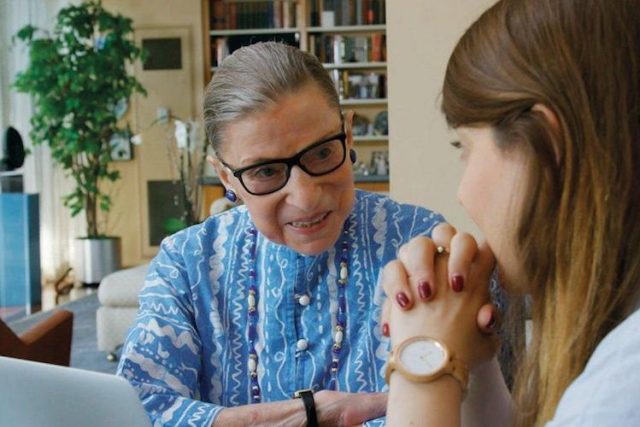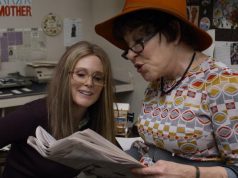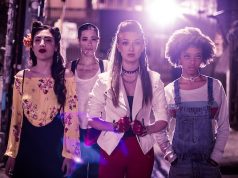
Supreme Court justice Ruth Bader Ginsburg started to become a pop-culture icon a few years ago, when the court shifted rightward and she found herself writing more dissents — scathing ones, often, on subjects that America was newly (re-)interested in, like women’s issues and minority rights. The Internet dubbed her “Notorious R.B.G.,” Kate McKinnon started impersonating her on “SNL,” and suddenly people one-third her age thought she was cool.
“RBG,” a light, approachable documentary by RGB super-fans Julie Cohen and Betsy West, takes this opportunity to show why people in the know have been singing Ginsburg’s praises for more than 40 years. Known as a quiet, introspective thinker with a ferocious streak that belies her diminutive stature, Ginsburg spent her pre-judge career working for gender equality, arguing six such cases in front of the all-male Supreme Court and winning five of them. In one, she represented a single father who had been denied government benefits intended only for single mothers, a case she took to show that gender discrimination hurts everyone … OK, and because it was a smart career move for her. RBG is shrewd, yo.
With access to Ginsburg herself and interviews with her children, a granddaughter, two childhood friends, and other relevant figures (Gloria Steinem, for example), Cohen and West provide an informative overview of Ginsburg’s career while also painting an endearing portrait of her personality and idiosyncrasies. She and her husband, tax attorney Martin Ginsburg, were a well-matched couple, his funny, outgoing nature balancing her soberness, and their love for one another is an unexpected highlight of the film. She transferred from Harvard to Columbia when Martin got a job in New York City; later, when Ruth became a federal judge, Martin happily moved to D.C. to support her, and lobbied hard for her to be considered when Bill Clinton had a Supreme Court vacancy to fill.
The film touches on Ginsburg’s love of opera, her unlikely friendship with conservative justice Antonin Scalia, and her recent rise in the cultural consciousness, which she embraces as much as an inherently shy person can. (She hadn’t seen McKinnon’s version of her on “SNL” but laughs uproariously when the filmmakers show her a clip.) It’s a bit of a hagiography, of course; if Judge Ginsburg has any flaws besides speaking out against Trump before the election (which she acknowledges was inappropriate), the film doesn’t allude to them. Sen. Orrin Hatch, an ideological opposite who voted to confirm her to the Supreme Court on her merits, shows up for a minute with only nice things to say (or at least only nice things that made the final cut).
But you come away from it with an appreciation for someone whose long career has been spent advocating for less powerful people’s rights, and a fondness for the woman herself. Regardless of her legal theories, you can’t help but be inspired by her intelligence and tenacity. At 85, she says she’ll remain on the bench for as long as she’s able to do the work. This documentary gives the impression that could be another 20 years.
B+ (1 hr., 38 min.; )





